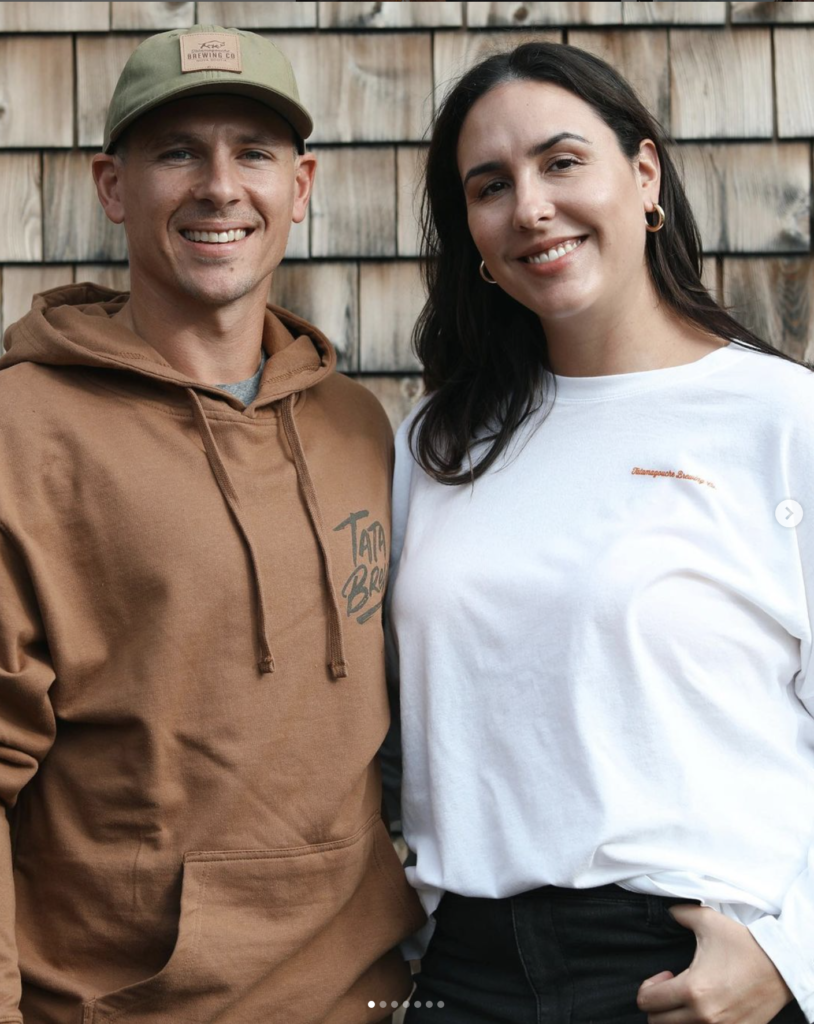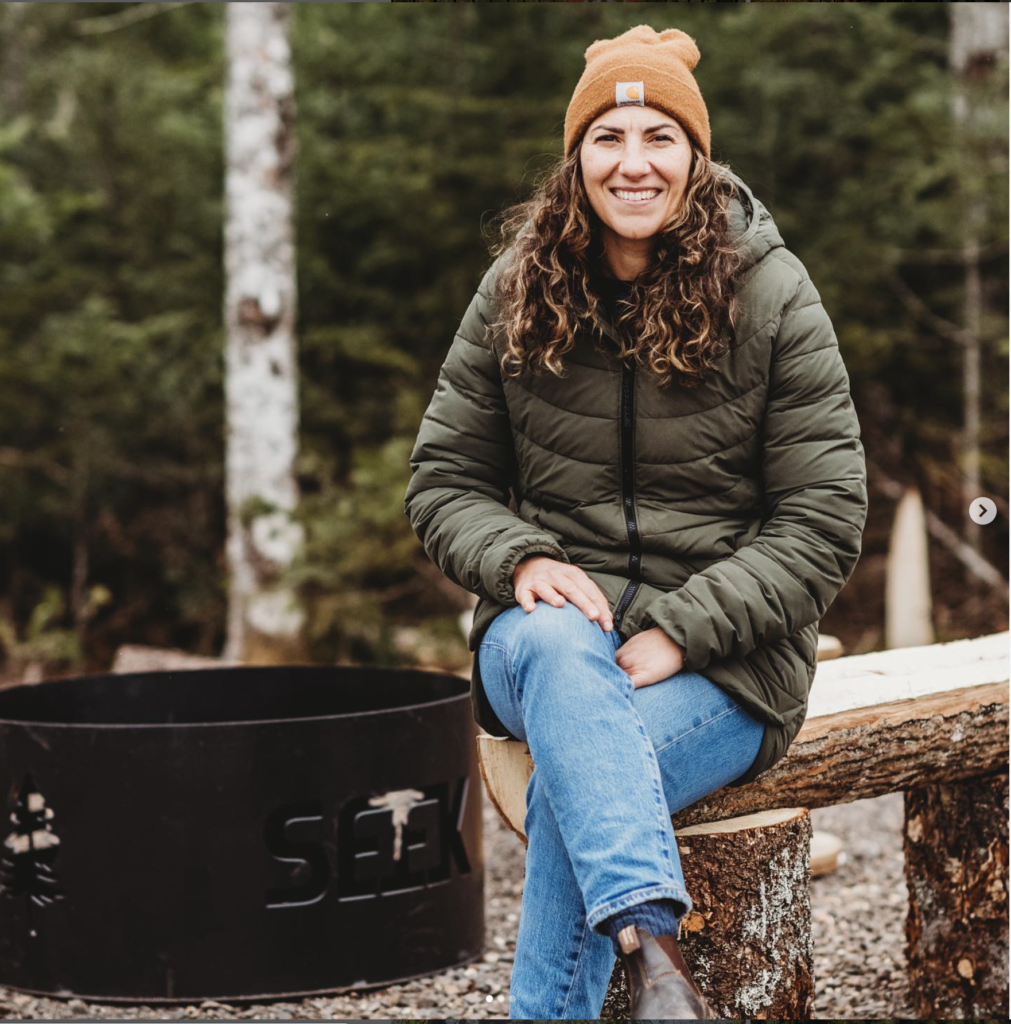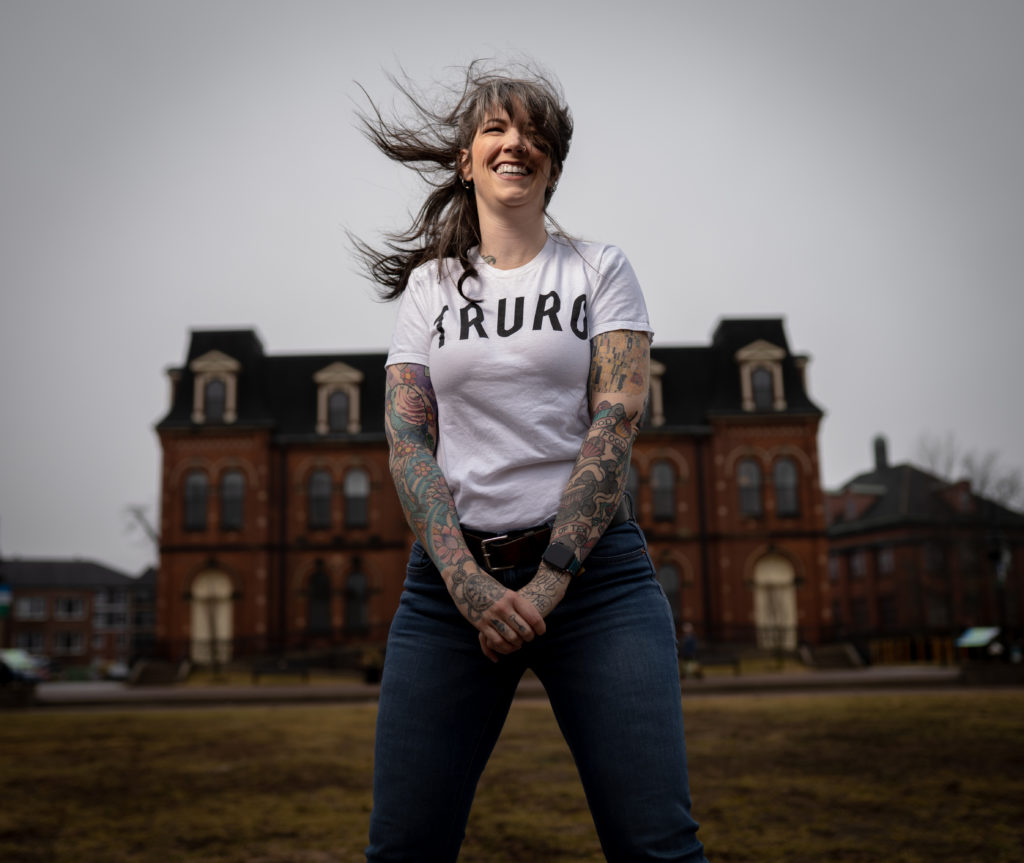We hear a lot about the struggles of small business owners, especially coming out of the pandemic. While owning a small business has long been romanticized by tv and movies, it’s often a lot more struggle than reward for many entrepreneurs. According to madeinca.ca, only about 50% of businesses survive to their fifth year. It’s not all doom and gloom when it comes to owning your own business but it can definitely be a daunting and uncomfortable endeavour. In honour of Small Business Week, we wanted to get real advice from real entrepreneurs that may help others on their entrepreneurial journey.
We polled a few local entrepreneurs asking them three important questions about being small business owners. Matt Kenny, owner of Tatamagouche Brewery, Miriah Kearney, owner of Seek On the Park Wilderness Accommodations, and Alicia Simms, owner of Truro Buzz and Rolling Sea Tattooery are sharing their experience and perspective. Matt has been a business owner for almost 9 years. Miriah has been an entrepreneur for 11 years and Alicia for 9 years.
How did you start your business?
Matt: Family Business. I saw an opportunity in the market along with the huge potential of the seasonal village in Tatamagouche. My previous business was in the Alcohol industry and it made the transition a little easier when it came to production and packaging. We had a very modest start servicing our village and a few licensees in the province but as the demand grew, we were able to expand as needed. We focused on increasing capacity but also knew in order to maintain a high quality product that is moving further and further away from the brewery, we needed to focus on things like our lab, quality control, new equipment for streamlining and increased efficiency. We now have products all over Nova Scotia in the NSLC and Licensees, as well as small amounts in the other three Atlantic provinces.

Miriah: I had the vision to build experiential accommodations right on Victoria Park, where people could explore one of the largest municipal parks in Canada, while also being right in Truro. Through another business I own, I could see people coming to Truro, but we had limited unique accommodations to keep them here for a longer period of time. I could also see the tremendous potential with Victoria Park and I could see the growth of our region. I wanted to create an eco-friendly destination where people could relax, adventure, and reconnect through nature.
Alicia: I was tattooing for seven years when I decided to open my own studio. I had a small clientele already in Nova Scotia so I wasn’t starting completely from scratch. I was about three years into that when Truro Buzz became a business. That happened organically as I was showing people on social media what it was like to live and work in Colchester County. Truro Buzz was a much harder go than my tattoo studio. It had a much steeper learning curve where I had to figure out how to monitize what was essentially a passion project. I reached out to all sorts of people and resources for help including the TCPEP, CBDC-NOBL and people within our municipalities for what they needed.
How do you handle rejection, or hearing the dreaded ‘No’?
Matt: In the early days, we did not hear “No” a lot. There were only a handful of breweries in the province, although new ones were opening every month, and demand was rapidly growing for local products. We were able to get distribution early and we had a good relationship with our licensees. As more and more breweries started opening it became harder to secure new taps and space needed to be shared with new breweries on the shelves. We started dealing with “no” or at least having to work harder at the sale after a few years of being open. That has continued to be the case as the industry matures. We realized we needed more feet on the ground and someone dedicated to the sales side. We also realized that more strategic decisions needed to be made when it came to how we approach sales.

One constant “no” or challenge we have faced since opening has been converting people who are not familiar with beer or have drank the same drink their whole lives. That has become a mission for everyone in the brewery and a talking point for when someone says they do not like craft beer. We like to think we have a beer for everyone and it just takes some time and discussion (mostly tasting) to showcase what is available.
Miriah: I try to figure out the “no”. Are they rejecting me or the business idea because they are not the right fit or don’t have the means? I then try to have a follow up conversation to discuss any suggestions and gain any insight they may have. Through this, I try and figure out a better solution, and get to work on my next move. When one door closes, another one often opens and the key is to not give up. Use the “no” as momentum, but also a learning moment to make better decisions.
Alicia: This was a hard one for me when I started dedicating time to Truro Buzz as a business. If I was going to do this, I had to start approaching people and I had no background in sales like this, or marketing really. I was terrified of reaching out to businesses with ideas and being told no. The thought of constant rejection was daunting even though I didn’t know that’s what was going to happen. Eventually I got to treating every sales email or call as an experiment. If they said yes, what did I do that time so I can try and do it again? If they say no, what could I try differently on my next approach. It really comes to teaching every no or ‘failure’ as a lesson – what did I learn from this, and how can I take that with me going forward?
What’s the one piece of advice anyone wanting to start a business needs to know:
Matt: The most rewarding thing we have ever done was follow this dream and passion. It is hard. It is hard to start from scratch and build. It is hard to look after your personal/family life. Balance is hard to find. It can open so many doors and lead you down an incredible path but it takes a lot of work. You need to be very stubborn and have a “whatever it takes” mentality. Do not dwell on negatives or failures (impossible not to at some point, but move on quickly) instead, focus on how you pivot and improve. Over the last 10 years we have learned to be agile and adapt as needed, but always keeping our vision and goals in front of us.

Miriah: I am going to answer this for someone who is hoping to go into business full time or acquire a new business (not a small business hobbyist). Do your research; connect with all, and any organizations that can support you in your start-up or acquisition; create a detailed business plan with good market research; be conservative in your planning & financials; be prepared to work harder than you ever have; but most importantly, always follow your heart. Financials are critical, but your heart is the greatest compass of all.
Alicia: You don’t need a business degree to run a business. You need a passion and a really strong work ethic. Of course formal training is an asset, but it’s not a requirement. Most successful small business owners I know don’t have degrees in business. I never thought I could run a business. I honestly didn’t think I was smart enough and that was my limiting belief. But I ask questions. I take advantages of resources around me. I reach out to mentors. Know someone who is doing what you’d like to do, or you like what they’re doing and want to ask them questions about how they do it? Reach out to them! You can do the hard things, but you have to be ready to work for it.
